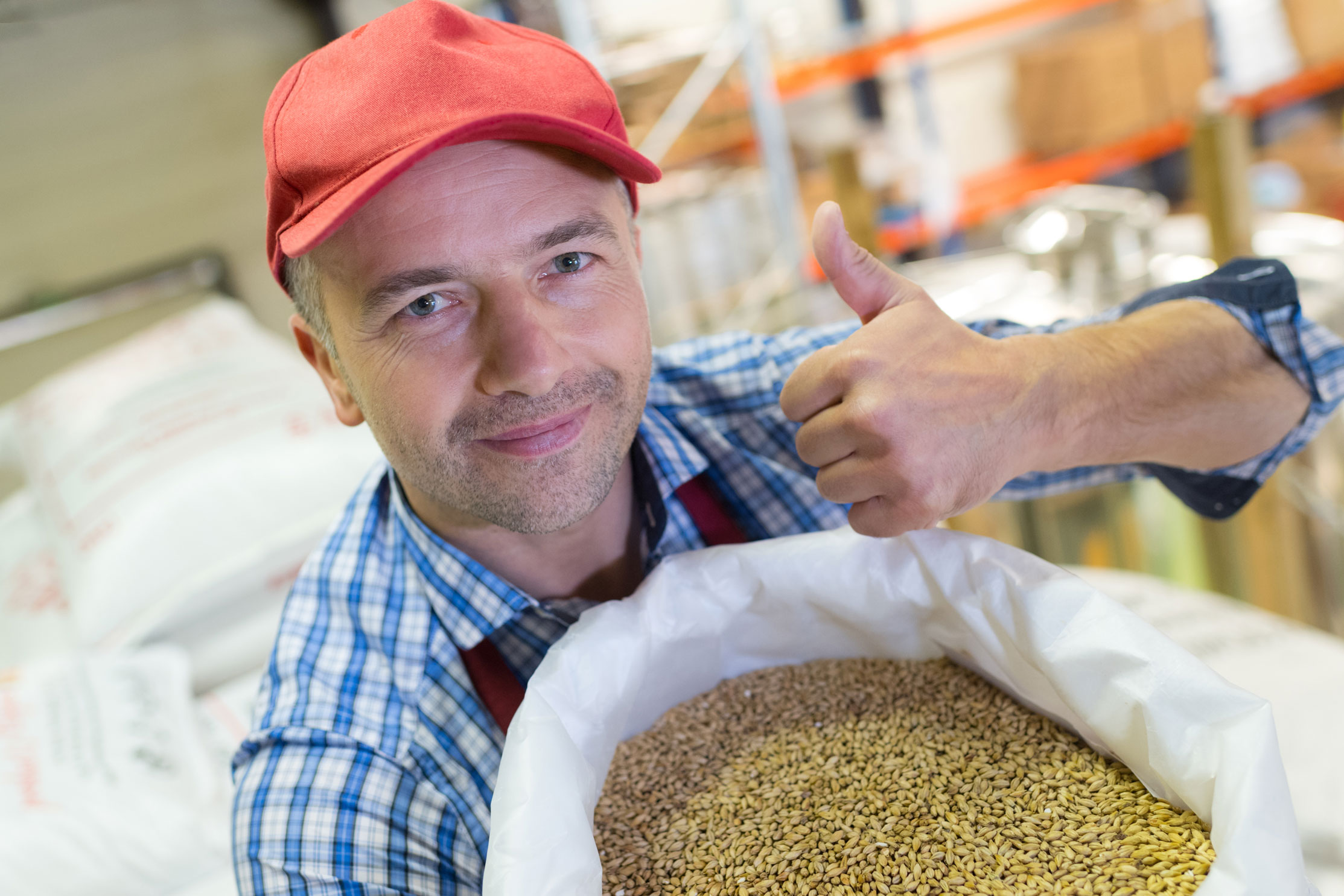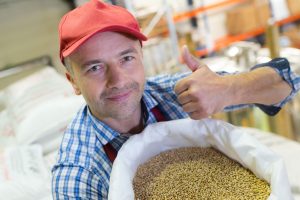- Published On: August 10, 2021
- Author: Bryce Irlbeck
Financial investors know it’s smart to diversify assets. It helps protect against volatility and reduce risk – and this same advice holds true for farming.
Diversifying your operation with organic specialty markets can help increase or stabilize your bottom line.
If you have organic acres, you’re already serving a niche market, and that puts you one step ahead. But you can differentiate even more. And capture higher premiums when you take the next step and sell into organic specialty markets.
What are organic specialty markets?
We consider organic specialty markets to operate outside of mainstream commercial supply chains. They tend to be smaller and more local, catering for example to craft beer makers or artisan bakeries. Popcorn, grains for food and beverage companies, and clear-hilum soybeans used for tofu, are common crops sold into specialty markets.
Because these crops require a higher level of execution, and not every organic farmer can serve these markets, they come with a higher premium. The prices vary by crop and buyer, but you can conservatively expect to sell these crops for 10% more than organic commodities.
Who should consider specialty markets?
Before you jump into the organic specialty markets, pause and ask yourself: How long have I been an organic farmer?
You can be the best farmer in the world and still make mistakes when you make the move to organics. The last thing you want to do is make those rookie errors on an a higher value contract.
The stakes are high for both you and the buyer. If you can’t deliver what they need, it puts their business at risk. If you can’t follow through on a specialty contract, you’re not going to work with that buyer again.
On B&B Irlbeck Farms, we had 5 years of organic production under our belt before we began serving the organic specialty markets. I recommend farmers wait at least 3 years after completing the transition process.
It’s also a good idea to get some experience growing the specialty crops you’re interested in selling before securing a contract.
How do you find specialty buyers?
Once you’re confident with organic production, you can start looking for buyers in the organic specialty markets. That begins with networking. Attend events and don’t be afraid to pick up the phone and do some cold calling. Start with local companies and then go farther out. You’re probably not going to land a contract with General Mills right off the bat.
Keep in mind that cold calling is a numbers game. For every 10 phone calls you make, maybe one or two lead somewhere. And of those, perhaps one turns into a contract. So don’t get discouraged if it’s taking a while to find a buyer. Just keep contacting people and getting your name out there.
Because it can pay off. That’s how B&B Irlbeck Farms became the supplier of organic rye to a local distillery.
What does it take to succeed in organic specialty markets?
Good agronomic practices
The good news is that growing organic crops for specialty markets isn’t too tricky.
As with any organic crop, you need to understand its nutrient needs and have your fertilizer ready. You need to be on top of the weeds, because they will lower the quality of the crop. And you need to ensure you’re buying the right organic seed. If a buyer wants high-weight corn or food-grade soybeans, that will impact your seed selection.
Keep detailed documents you can share easily
The key challenge of serving specialty markets is management. Particularly the documentation.
It varies by market, but almost every specialty buyer will request specific information to ensure you’re delivering what they want. When a company reaches out and asks for paperwork, you should be able to provide it to them within 30 seconds. Doing so will save them tremendous time, effort and worry – and increase their confidence in you.
Because AgriSecure members already document everything for organic certification in MyFarm, the platform makes working with specialty markets even smoother.
Manage risk well
A failure on your end can have a direct hit on your buyer’s business. So your buyer will want to know how you’re managing risk to ensure you can deliver the crop. Again, this goes back to details and documents.
Have your infrastructure in place
In order to guarantee you can deliver as promised to a specialty buyer, you need the right infrastructure in place. It depends on the crop, but you’ll need the correct handling setup, drying setup, and harvesting tools. You’ll also need to be able to manage it separately from your other organic and conventional crops.
Build your reputation
Secured a contract? Great! Now you need to do a superb job delivering exactly what the buyer asked for. That’s how you build a strong reputation that will lead to future opportunities. My farm is currently growing corn for a food company who reached out after hearing about us.
Determining your odds of success
Producing for organic specialty markets is not for everyone. You can probably grow the crops, but you may not have the capacity to build and manage the business relationships.
The best way to determine if specialty markets are a good fit for your organic farm is to talk to someone who has experience with them. They can help you understand what it takes to succeed, as well as the financial impact it can have on your operation.
Our team at AgriSecure has first-hand experience serving specialty markets. We can help you decide if it’s the right move, and guide you on a path to success if it is. Reach out today for a free consultation.
Get in the know
Our newsletter, it’s a quick read. You’ll get industry news plus all the latest organic insights. Who doesn’t want that?


